In 2025, the race to offer the fastest internet is more competitive than ever. Countries are pushing to enhance their internet infrastructure, aiming to deliver top speeds and provide reliable public Wi-Fi connectivity. With the rise of remote work and digital collaboration, fast internet has become essential for productivity and seamless communication, making it a key priority for nations worldwide.
In this post, we’ll highlight the countries with the fastest internet, focusing on key criteria like average download and upload speeds and overall connectivity.
Top 10 Countries With the Fastest Internet
| Country | Download Speed |
|---|---|
| United Arab Emirates | 291.85 Mbps |
| Singapore | 290.86 Mbps |
| Hong Kong | 277.26 Mbps |
| Chile | 263.89 Mbps |
| United States | 243.1 Mbps |
| Thailand | 231.86 Mbps |
| Iceland | 226.28 Mbps |
| France | 226.21 Mbps |
| Denmark | 219.44 Mbps |
| Spain | 207.90 Mbps |
1. United Arab Emirates
The UAE tops the charts in 2025 with an average internet speed of 291.85 Mbps. With this kind of speed, people in the UAE are enjoying smoother streaming, quicker downloads and a better overall online experience.

2. Singapore
Singapore comes in a close second in 2025, with an impressive average internet speed of 290.86 Mbps. Known for its strong focus on technology and innovation, Singapore continues to deliver top-tier connectivity. Whether it’s for streaming, gaming or remote work, users in Singapore enjoy one of the fastest and most reliable internet experiences in the world.

3. Hong Kong
Hong Kong secures the third spot in 2025 with an average internet speed of 277.26 Mbps. This high-speed connectivity is a result of Hong Kong’s strong focus on maintaining advanced digital infrastructure. For residents, this means seamless streaming, fast downloads and a reliable online experience, making Hong Kong one of the best places for high-speed internet access.

4. Chile
Chile ranks fourth in 2025 with an average internet speed of 263.89 Mbps. With such high speeds, users in Chile enjoy faster browsing, smooth streaming and efficient online activities, making it the top country for high-speed internet in Latin America.
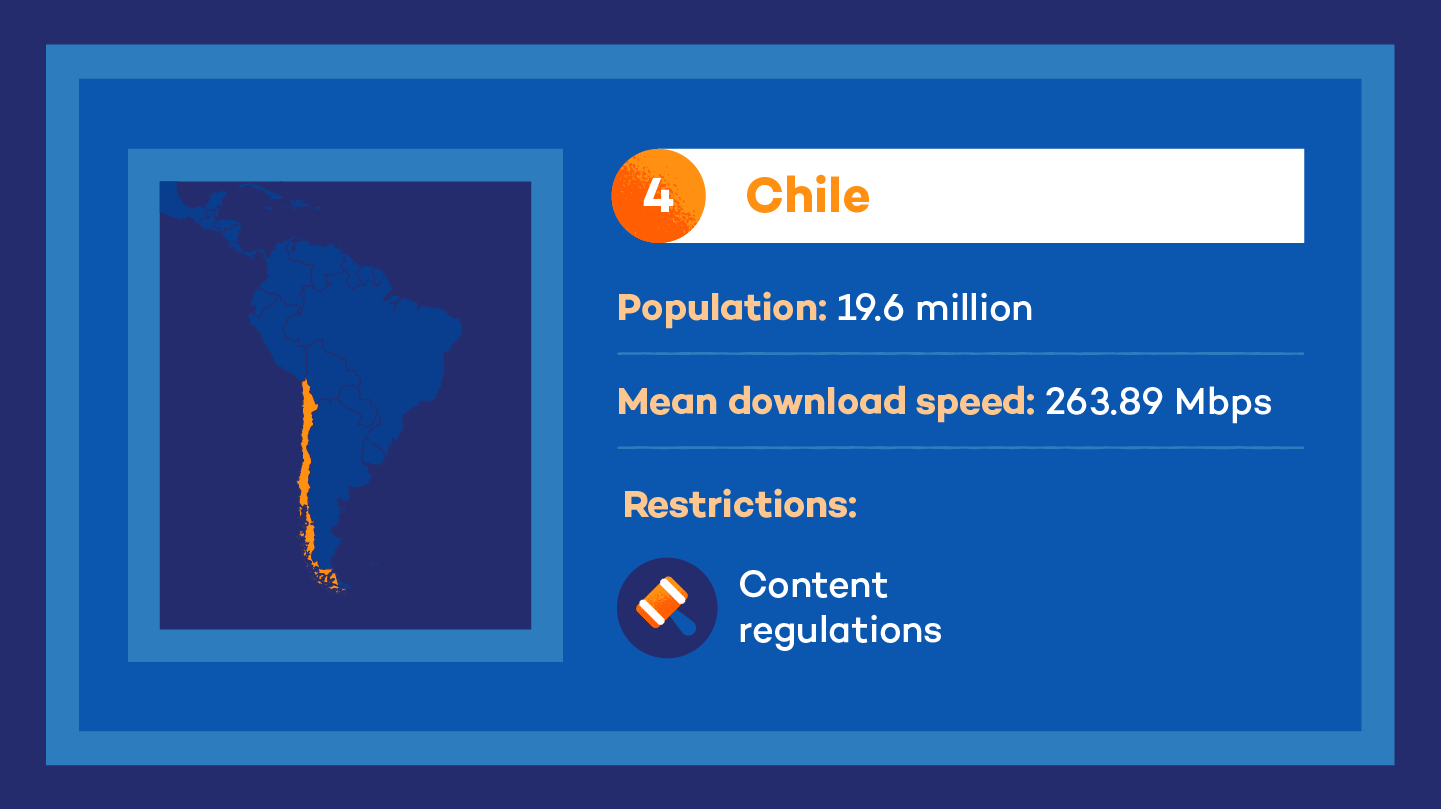
5. United States
Despite being a technological powerhouse, the United States ranks only fifth in terms of average internet speed at 243.10 Mbps. This relatively lower position can be due to a combination of factors, including the country’s vast geographical expanse, diverse infrastructure landscapes and varying levels of competition among internet service providers in different regions.
While major cities and urban areas often enjoy high-speed connections, rural and less populated areas may experience slower speeds due to infrastructure limitations.
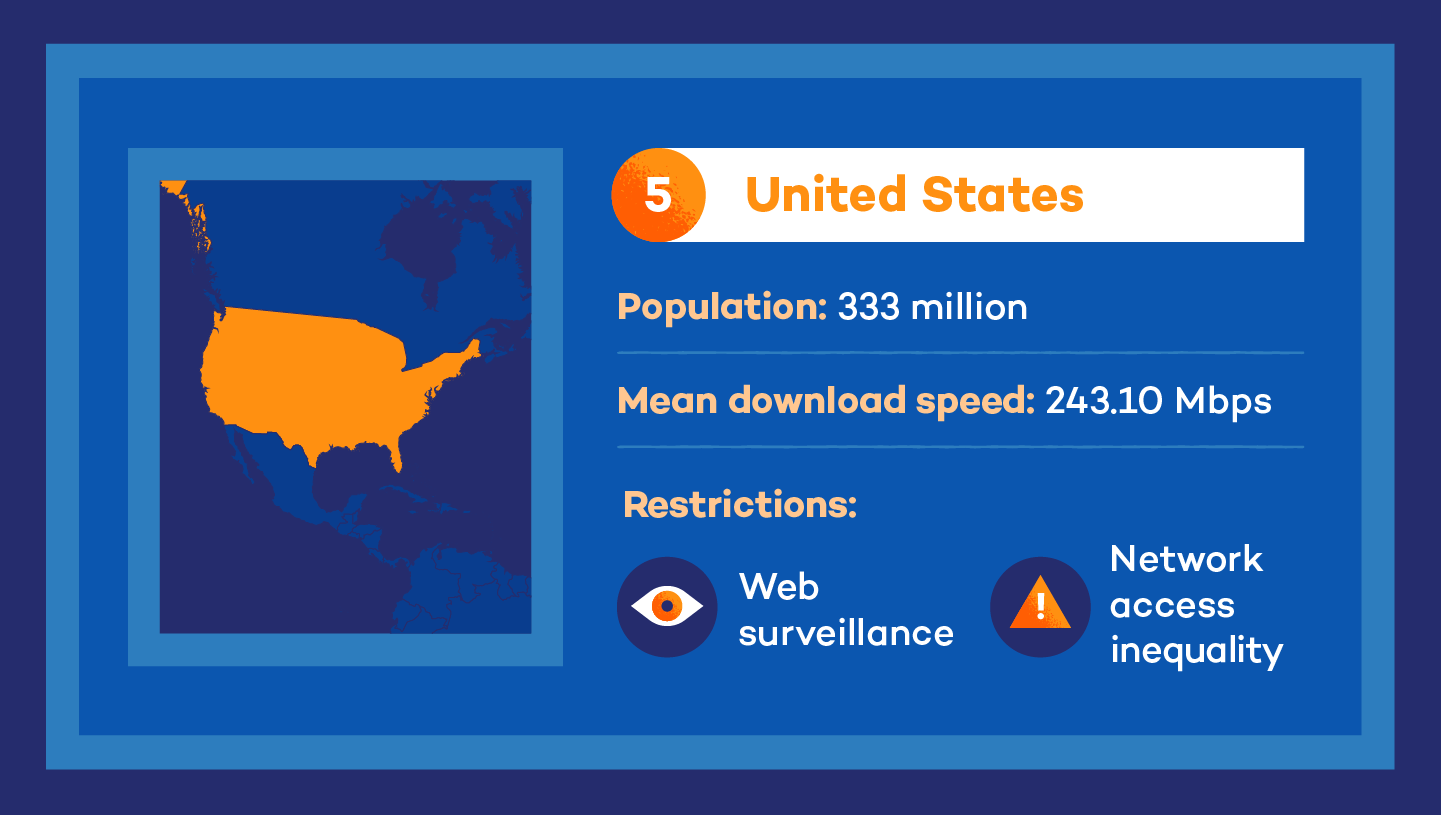
6. Thailand
Thailand, known for its vibrant culture and stunning beaches, also boasts impressive internet speeds. The country ranks sixth globally with an average download speed of 231.86 Mbps. Thailand’s impressive internet speeds, coupled with its reasonable cost of living, have made it a popular destination for digital nomads and remote workers.
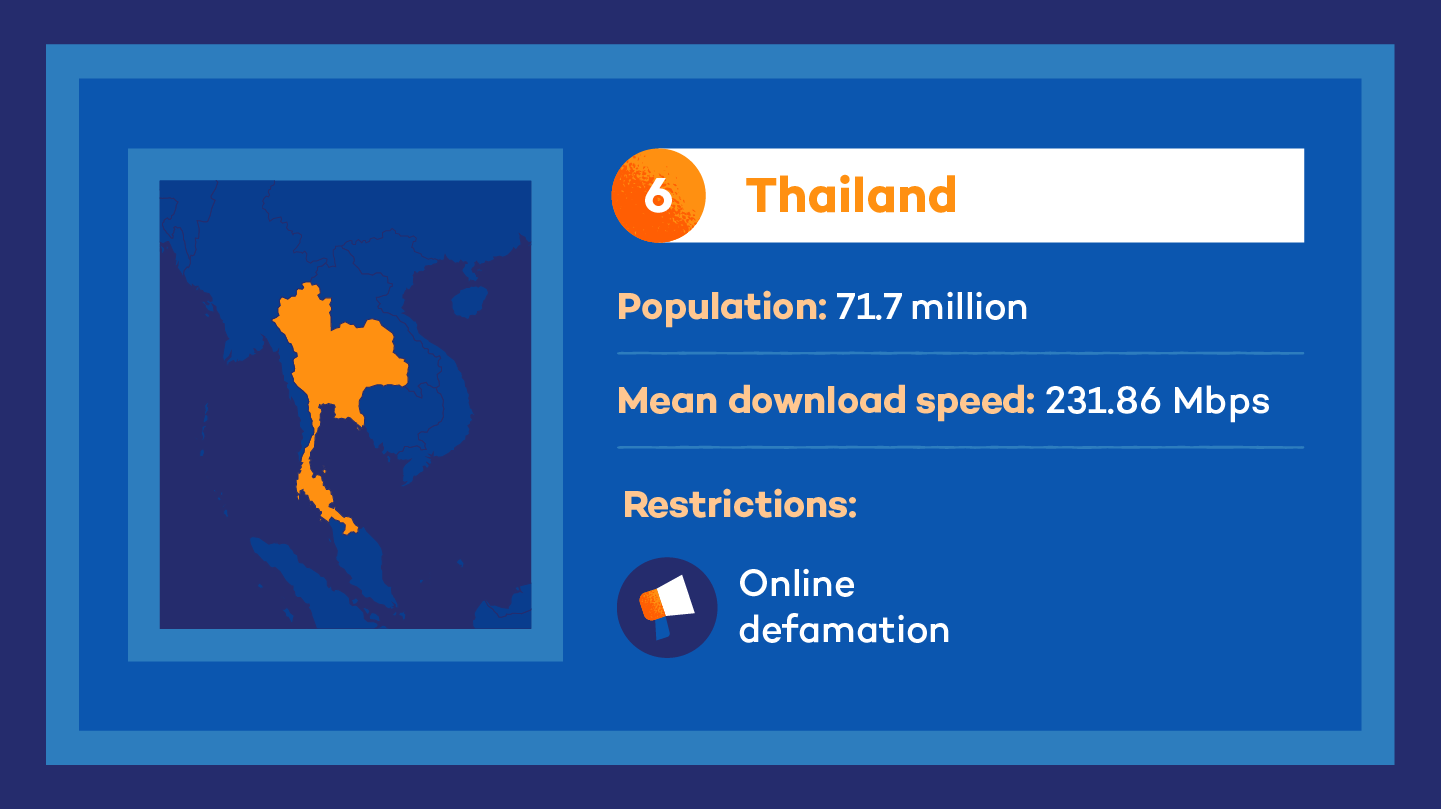
7. Iceland
Despite its remote location, Iceland ranks seventh globally with an average download speed of 226.28 Mbps. This high-speed connectivity is attributed to several factors, including substantial investments in fiber optic infrastructure, a relatively small and technologically advanced population and a competitive market among internet service providers.
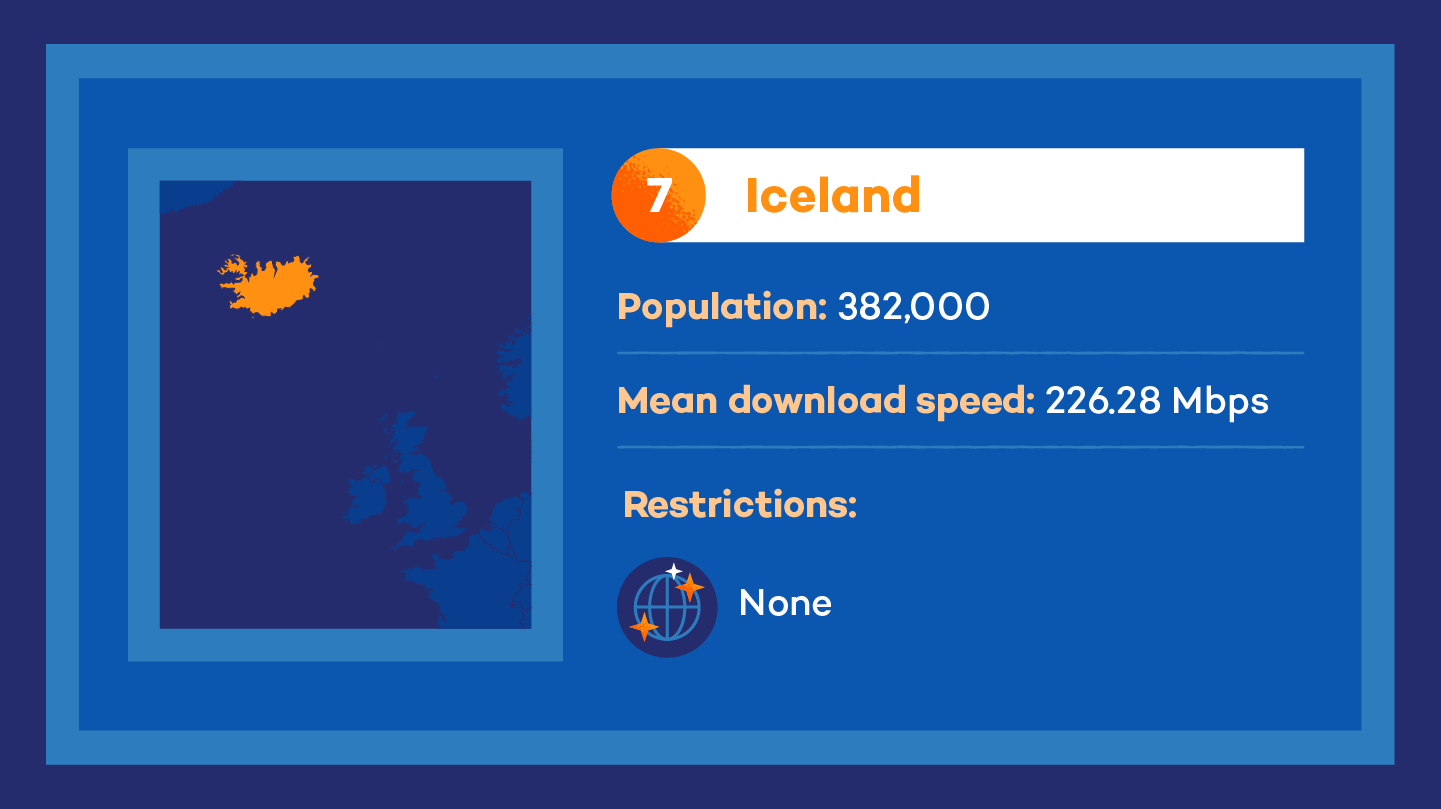
8. France
France ranks eighth globally with an average download speed of 226.21 Mbps. The country has made significant investments in fiber optic networks, expanding coverage across both urban and rural areas.
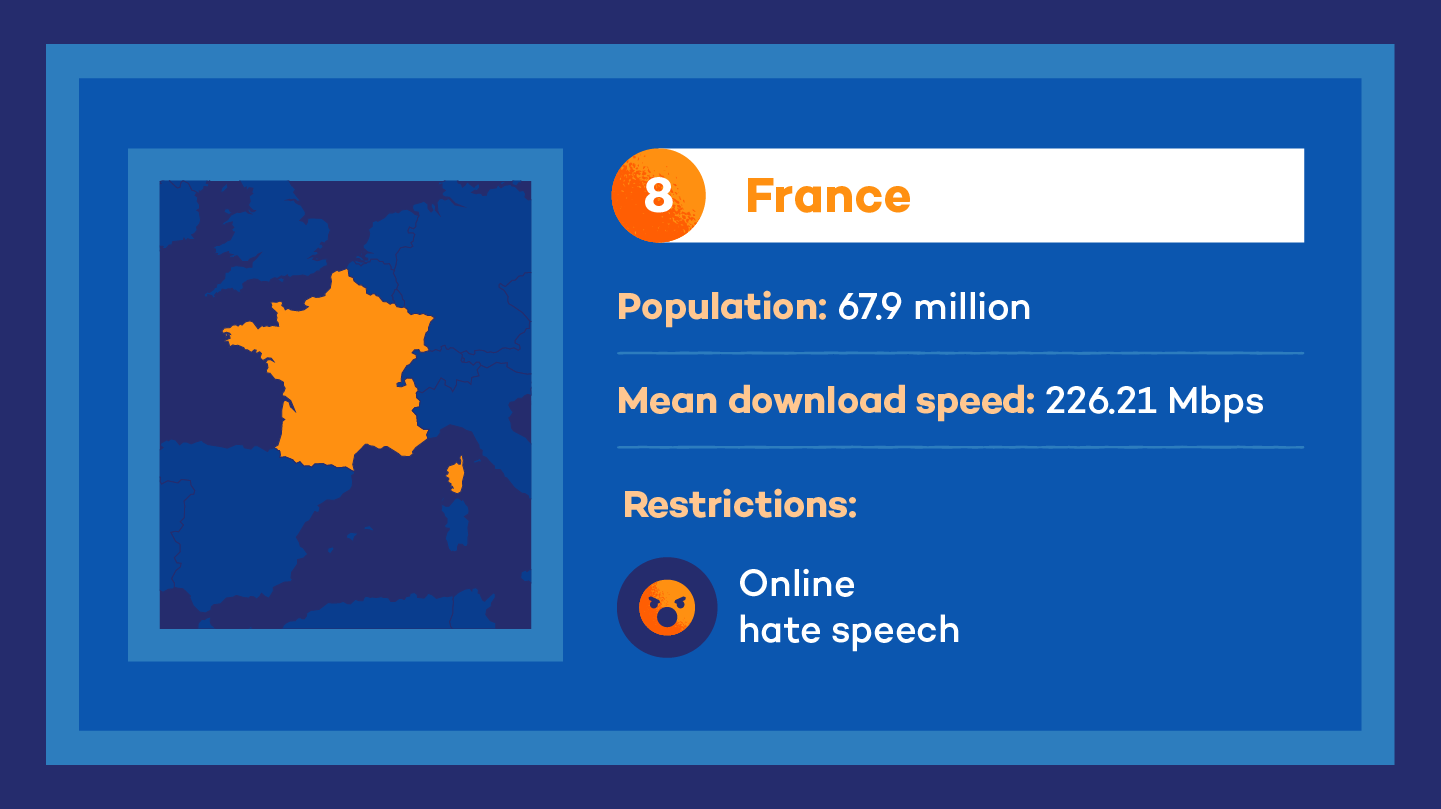
9. Denmark
Denmark ranks ninth globally with an average download speed of 219.44 Mbps. Denmark’s robust internet infrastructure has played a crucial role in driving innovation, supporting remote work and education and enhancing the country’s digital competitiveness.
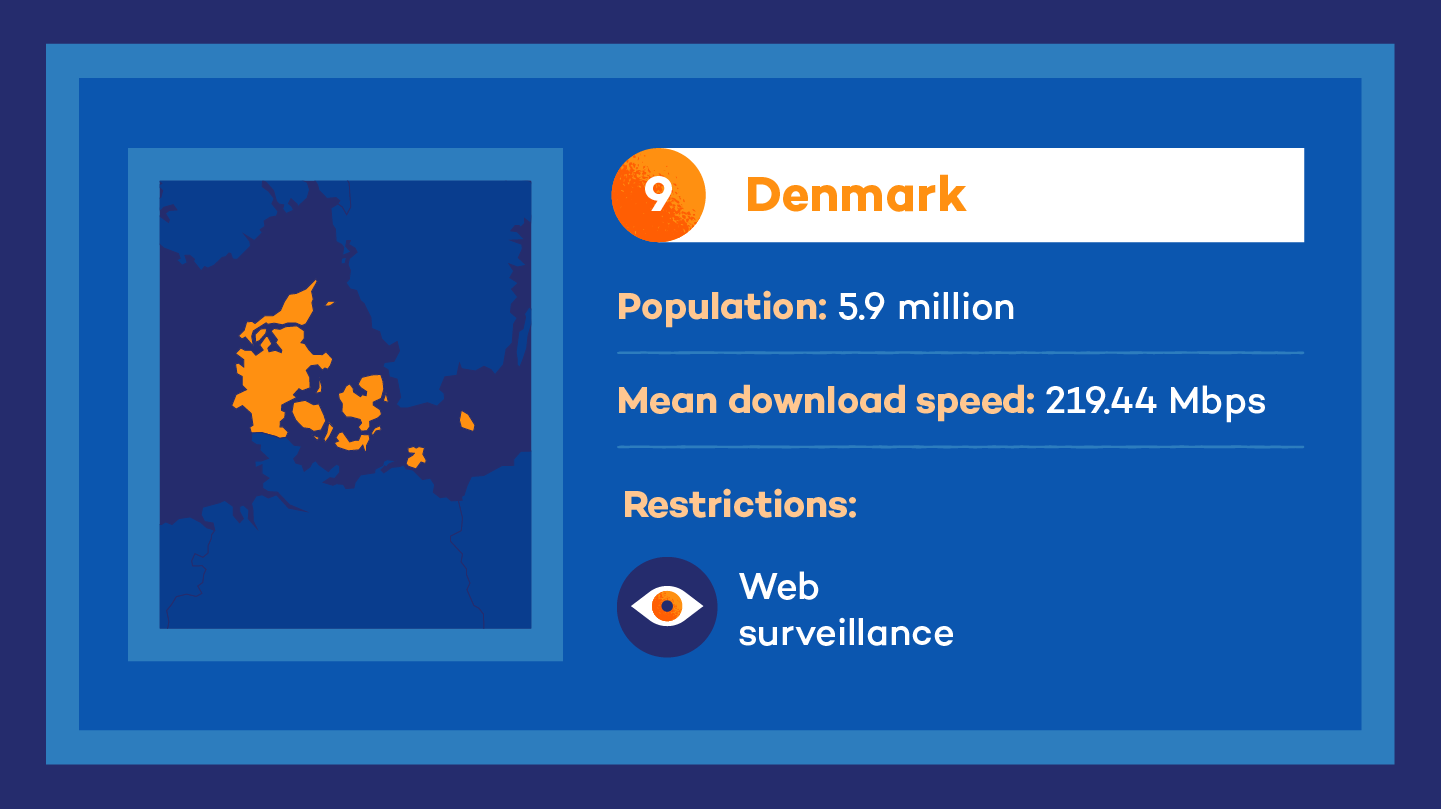
10. Spain
Spain ranks 10th in 2025 with an average internet speed of 207.90 Mbps. This impressive speed underscores Spain’s significant progress in upgrading its digital infrastructure. In recent years, the country has made substantial investments in expanding fiber optic networks, enhancing the online experience for individuals and businesses.
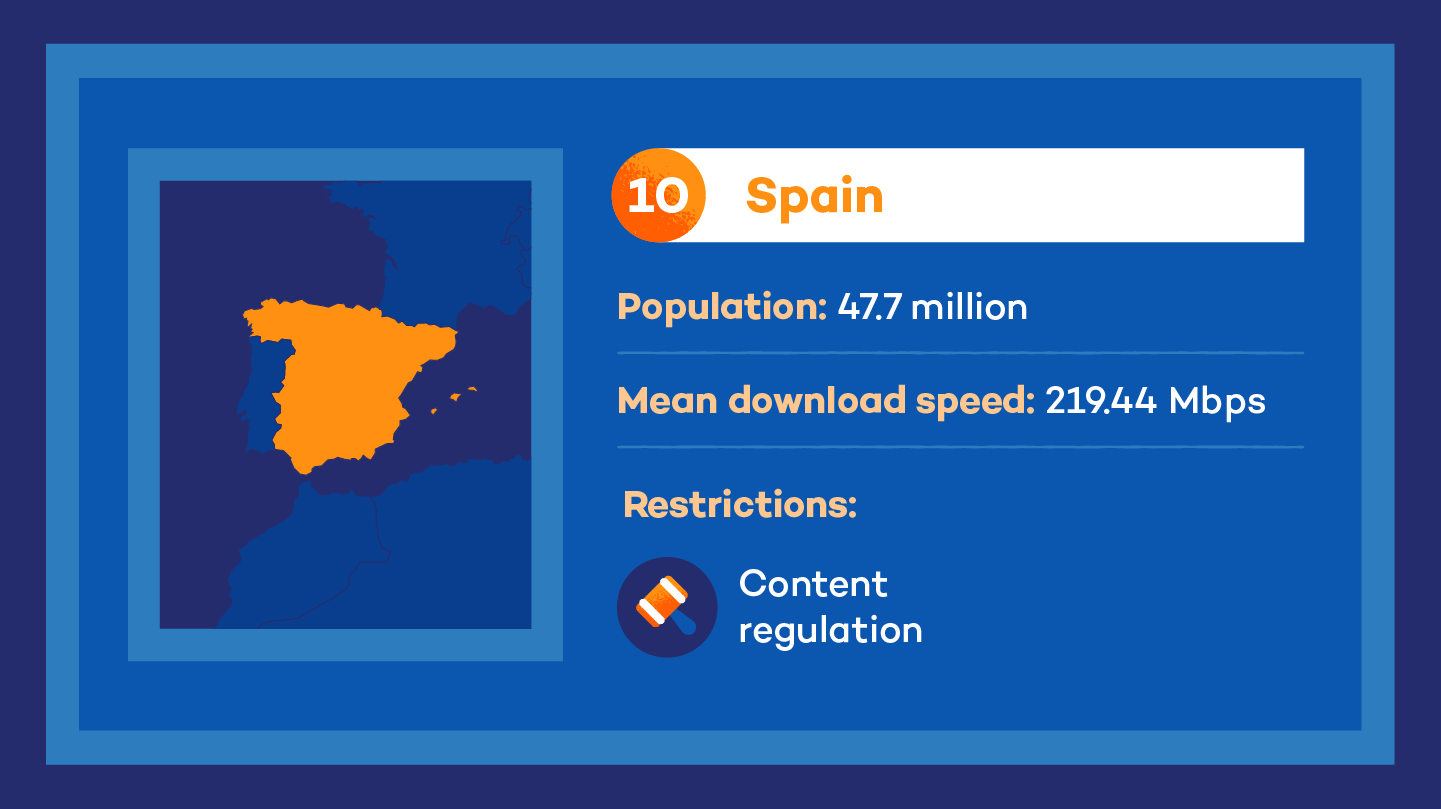
5 Things to Consider While Abroad
In addition to internet speed, there are other considerations when you’re planning on working abroad. These include surveillance, network access inequality, freedom of speech restrictions, social media restrictions and virtual private network (VPN) bans.
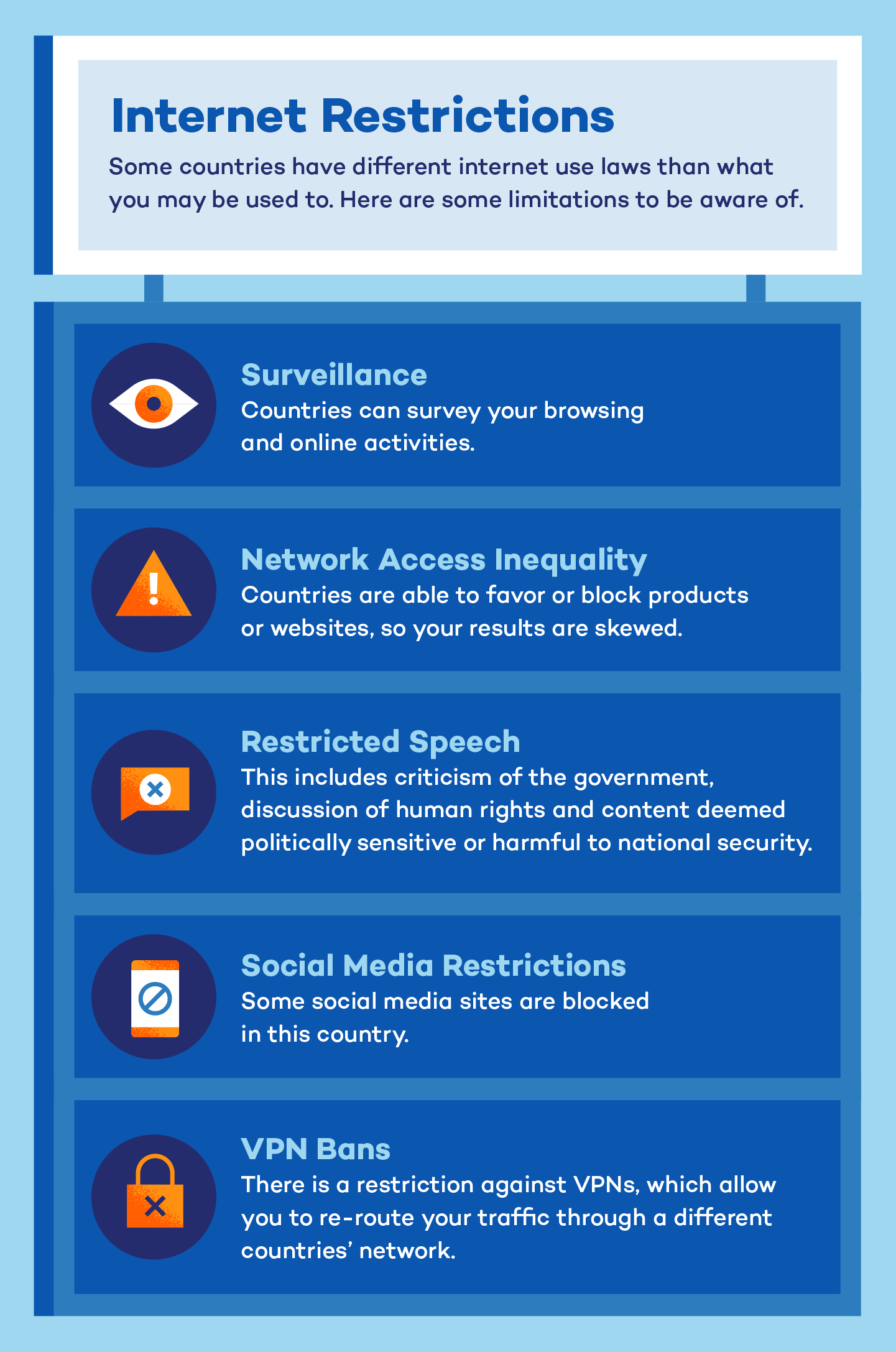
Surveillance
This refers to countries that allow surveillance of browsing and online communications. Many governments have the ability to monitor your online activity. This is important to be aware of if you are working from a different country.
Network Access Inequality
This is the opposite of net neutrality, in which Internet service providers should allow access to all content and applications, regardless of the source. Network access inequality means these countries are able to favor or block products or websites. When you are working or visiting a different country, it is helpful to know if your search results are being skewed.
Freedom of Speech
Freedom of speech refers to the right to express your opinion without censorship, restraint or punishment. However, countries like China, Saudi Arabia and North Korea impose significant restrictions on this right, limiting what can be said or published, particularly in the media and online. For professions like journalism, understanding these varying laws is crucial when working internationally.
Social Media Restrictions
Many social media apps and sites are blocked in different countries. If you are an influencer or social media specialist that’s planning on traveling to a different country, knowing these restrictions will allow you to plan around them while working abroad.
VPN Bans
Virtual private networks or VPNs allow you to change your IP address and re-route traffic through a different countries’ network. If a country has any of the above restrictions, you may be able to get around them using a VPN. However, some governments have realized this and now ban VPNs.
There are many benefits of having fast Internet but it’s important to be sure you have the proper security while using it. Use a VPN while traveling abroad and download an antivirus to keep your computer or mobile device safe.








6 comments
Absolute garbage
1. Singapore city-state, not a country
2.france, germany have the lowest speed in europe, italy is the worst
3. in romania and hungary have the newest infrastucture in europe ie in majorcities you can ONLY get fiberoptic connections that run all the way inside the house
4. rural regions in usa steel use modems
Agree.
And doesn’t South Korea have the fastest wifi?
Yes
A complete waste. Here is a better rank.
https://en.wikipedia.org/wiki/List_of_countries_by_Internet_connection_speeds
uhmm. What did you do with the Netherlands map? Its completely off
Looking for “fastest” and getting “averages”
I could like to point out that I expected an article that listed the fastest commercially available connections per country.
This can help when selecting a country to move to for example.
Averages show mainly what people can afford per country I think. Is this the info most people are after?